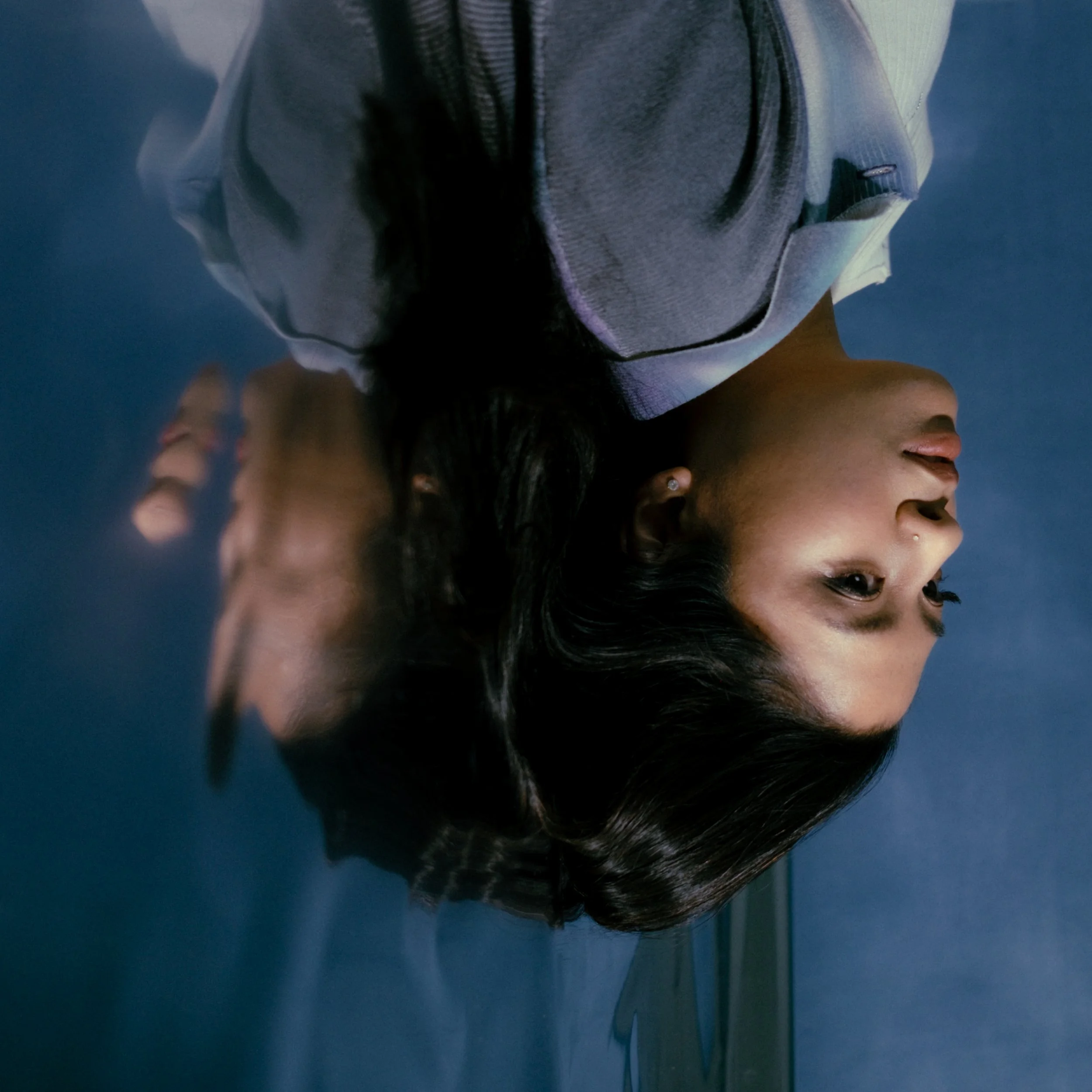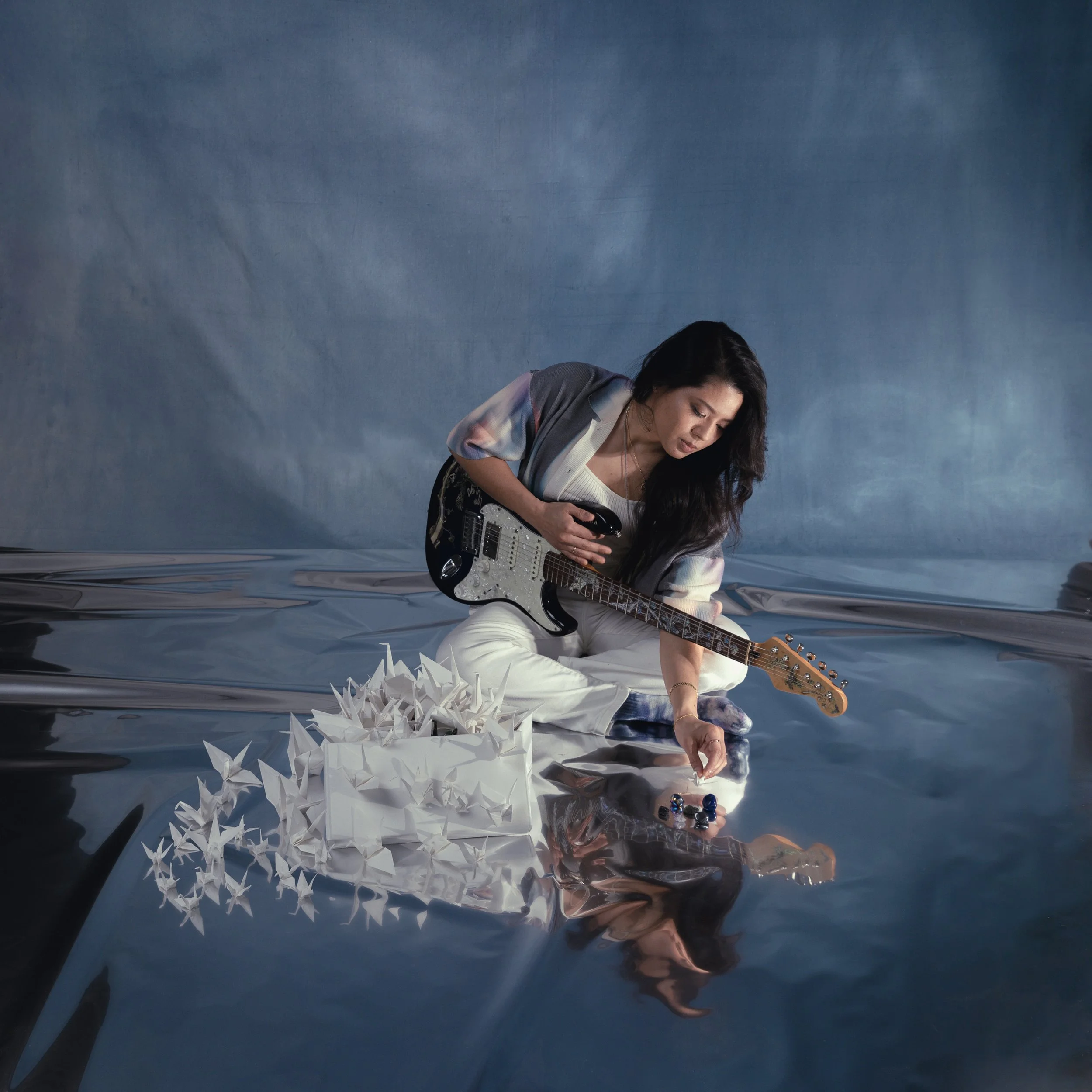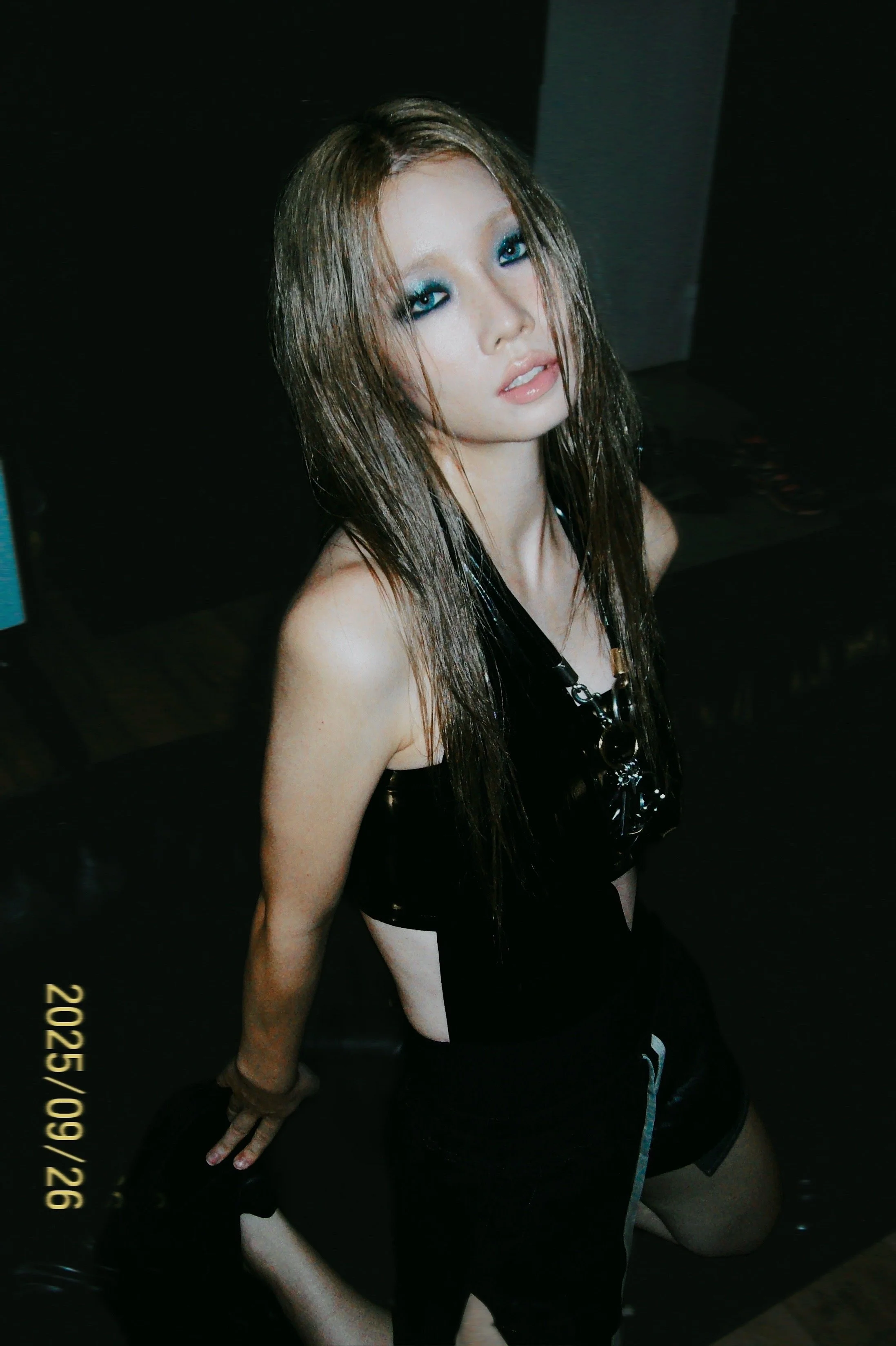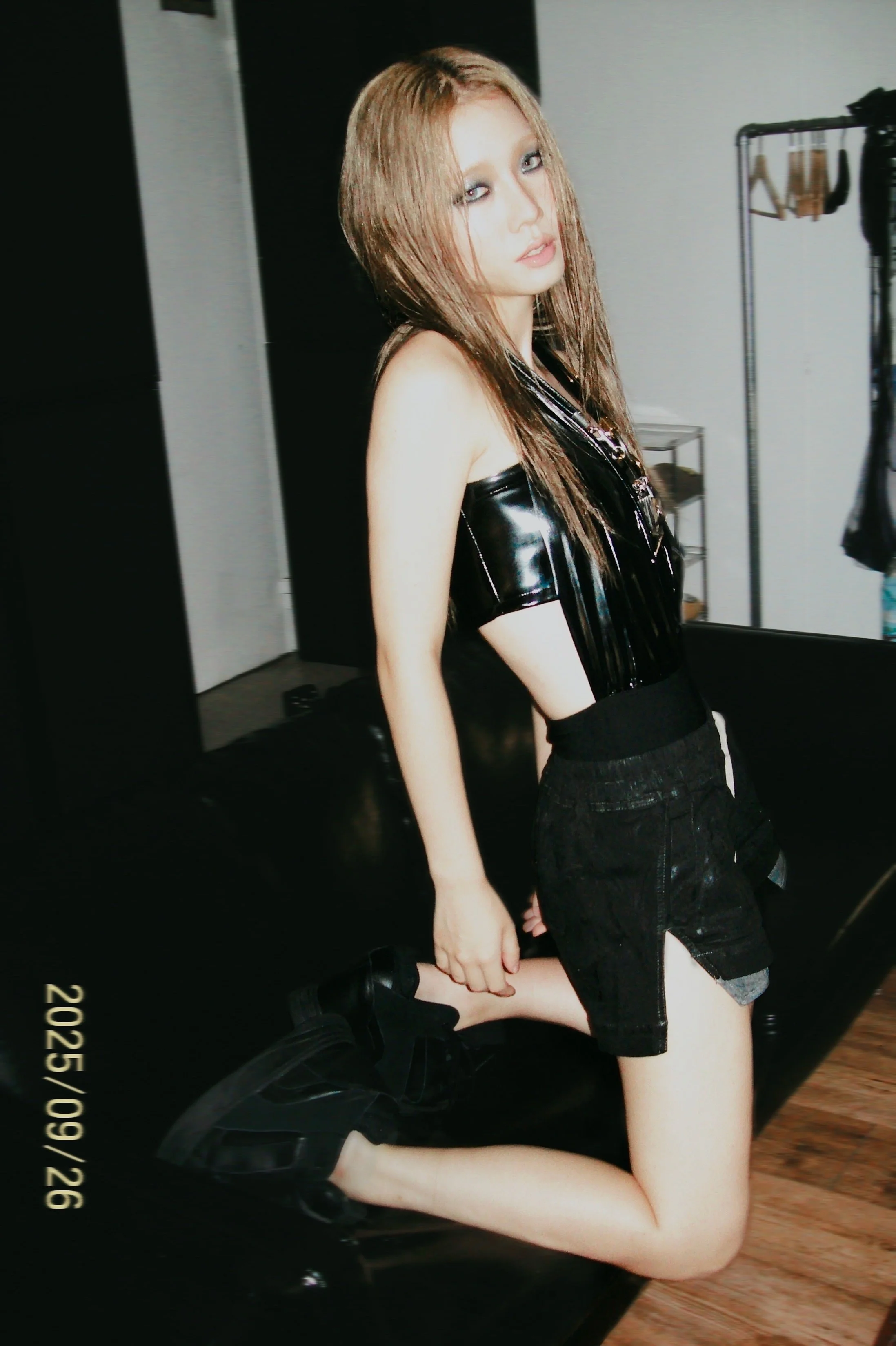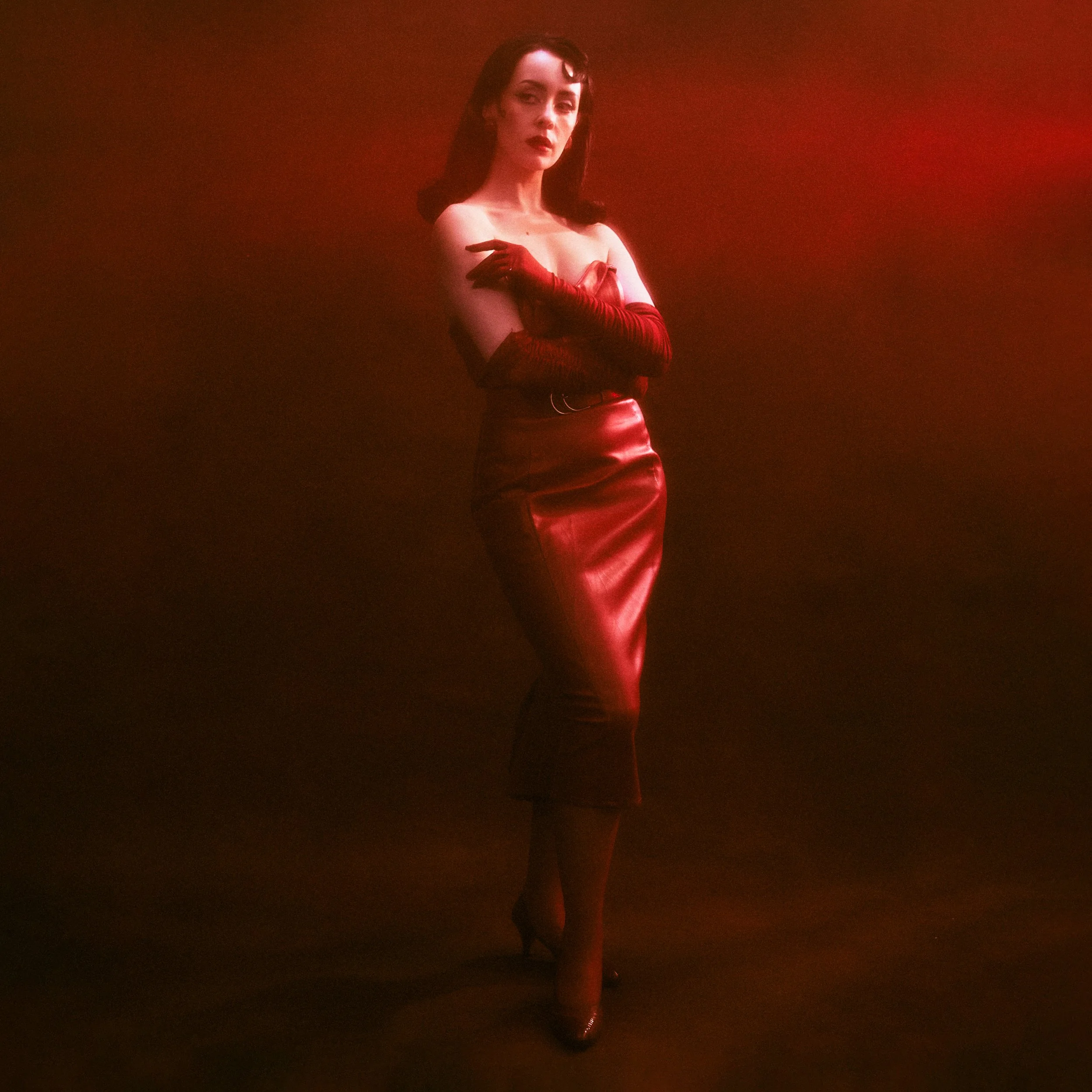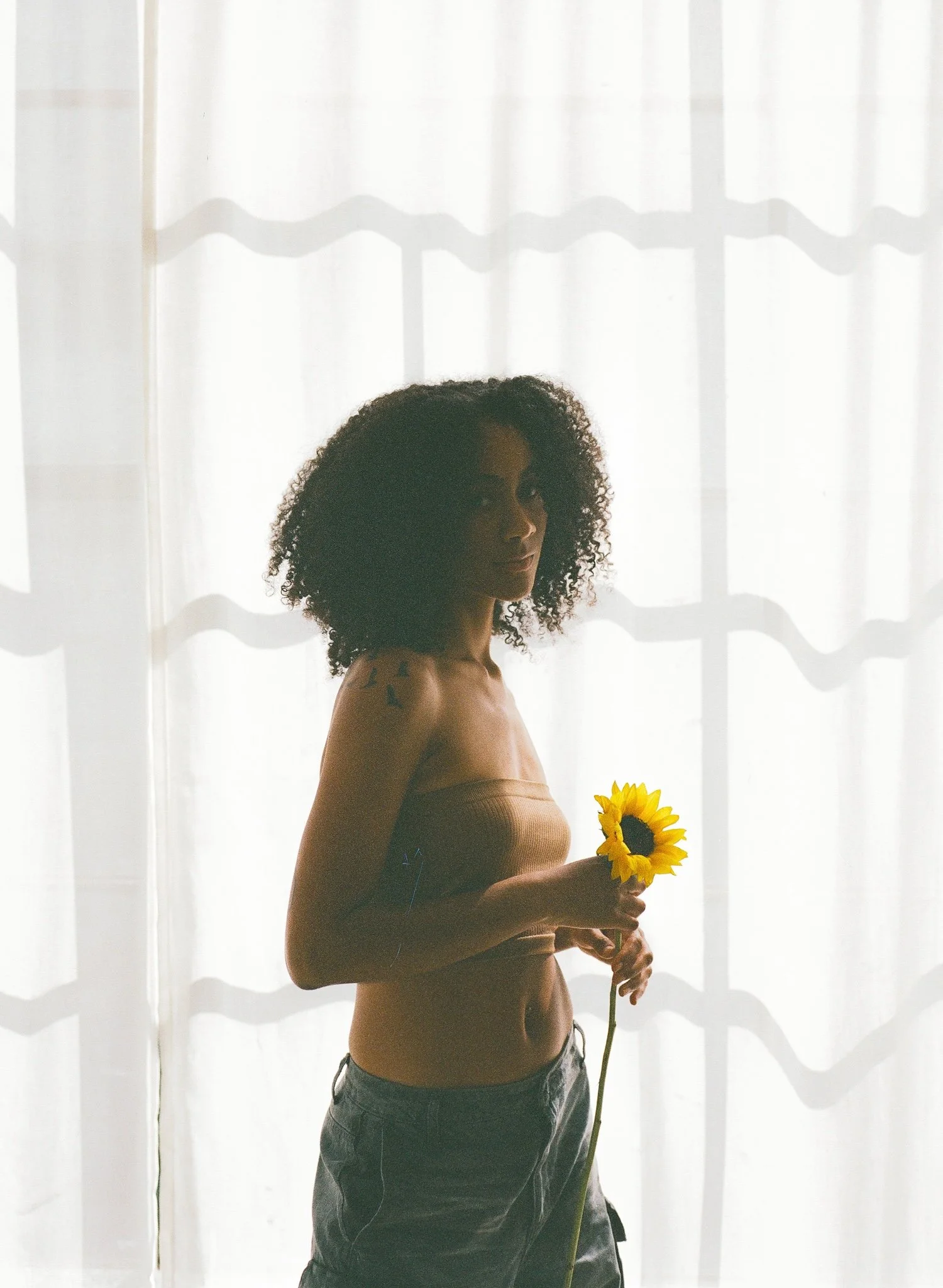by martina rexrode
photo by mk sadler
When any artist releases their debut album, it often comes with the pressure of presenting their unique sound in a cohesive, longer form, something taken for granted in today’s music landscape. For Alina Ly and her debut album, Shoebox, it was a decade-long journey of self-awareness and vulnerability. After the album’s release in November, Unclear got the chance to speak to Alina about Shoebox, the feelings and stories behind it, and what’s to come.
First of all, I want to wish you a belated congratulations on the release of your debut album, Shoebox! I just finished listening to it for the first time and already can’t wait to revisit it. How have you felt after putting such a vulnerable and cohesive piece of work out into the world?
Alina: “Thank you so much. Honestly, I felt a real sense of catharsis once I finished making the record. I took some time away afterward, spending a couple of months in Portugal, and with some distance from the mixing process I listened to the album while driving along the coast. In that moment, I felt content that I had done what I set out to do, which was to make this album exactly as it needed to be and, most importantly, for myself. Releasing something so personal into the world brings a different kind of vulnerability. Creating the work is one thing, but allowing people access to such a private emotional space inevitably tugs at a few nerve endings. But once it was out, and especially after the launch show, which was received exactly as I had hoped, I felt an enormous sense of relief. Now that feeling has shifted into excitement and motivation for what comes next.”
Can you describe Shoebox and what it entails for those who might be about to listen for the first time?
Alina: “Shoebox is a haunting and soul-provoking body of work that blends emotional clarity with a kind of cinematic restraint. It traces a path through grief, growth, memory, and the unspoken spaces in between. Each track is like a small excavation, intimate and layered, rooted in a mix of indie soul, ambient soundscapes, and experimental textures.
The album is centered around three singles: the ethereal title track ‘Shoebox,’ the quietly resolute ‘Unscathed,’ and the volatile closing chapter ‘Landmines.’ ‘Shoebox’ grapples with personal loss through ghost-like sonics and guitar layers, ‘Unscathed’ reaches for acceptance without demanding closure, and ‘Landmines’ is a darker departure that closes the record while pointing toward what is coming next. This album is a home for moments I could not process any other way, as with all of my music. I built it layer by layer, sound by sound, but above all else, feeling by feeling.”
I loved reading that the title of this album came from the idea that the songs, for you, felt like writing down your feelings and storing them away like memories in shoeboxes. When did you first conceive of this idea, or when do you remember the album’s loose concept first coming together?
Alina: “The album title came from the title track, which has always felt like the anchor for everything this record explores, and I think that tends to be true for a lot of my songwriting in general. I wrote ‘Shoebox’ during a period of deep exploration around grief, acceptance, and self-discovery. Even before the full tracklist came together, I knew this song anchored the project and needed to be shared. I’ve performed it around the world over the past decade, and it has been a huge part of my own healing journey as well as a lesson in embracing the beauty of vulnerability. If there was anything this record required from me, it was that willingness to be completely open. Without that, it would not have felt worth making.”
Did the one-take live performance of the album alter the way you thought of any tracks? Did any tracks come to life more when played live?
Alina: “Yes and no. Reimagining the album for a one-take performance meant returning to the songs with the same love and care that created them. In many ways that meant not altering them at all, as I wanted to honor the rawness and purity of how they were originally written. But performing Shoebox in one continuous breath also required us to rethink certain elements. We built new segues, transitions, and musical pathways that did not exist on the studio versions while staying true to their emotional core. Watching the songs grow in that space has been beautiful, and many of those elements naturally found their way into our live shows.”
How long had some of these tracks been in the works before Shoebox was released?
Alina: “Some of these songs trace back almost a decade, with ‘Shoebox’ being the oldest. Around 2020, my guitarist Jake Stentiford and I started demoing ideas as I explored a relationship with one of the majors, but ultimately I chose to release everything independently. Anyone close to me will tell you that I move at my own pace, guided by intuition more than anything else. Each song on the record had its own right of passage in evolution, especially over the last five years while I focused on creating my first full body of work. Everything unfolded in its own time, and I believe the project is stronger for it.”
Your tone and the careful instrumentals reminded me of artists like Birdy and Billie Marten. Who are some of your biggest musical inspirations?
Alina: “Thank you, that’s really kind, and I love those references. I'm most drawn to artists who know how to leave space in their music. That sense of careful instrumentation, where nothing is there unless it needs to be, has always resonated with me.
I could list artists, and in some cases that makes sense. Sade has been a powerful reference point for emotional restraint and intention, and producers like Brian Eno and Jon Hopkins have deeply influenced the way I think about space, texture, and atmosphere. I've always been inspired by film composers as well, from the emotional scale of Hans Zimmer to the quieter, more minimal work of Ólafur Arnalds.
Beyond individual influences, what shapes the way I approach music is the idea of holding space — allowing simplicity and silence to carry meaning. Whether it is a song or a score, I am drawn to work where each sound exists because it needs to. That philosophy naturally feeds into my process and sits at the heart of how I make music.”
photo by mk sadler
What’s your favorite part of the creative process (writing, instrumentation, production, etc.)?
Alina: “I love every part of the process. The entirety of it is cathartic for me, especially the most difficult moments, like the initial stage of writing, unraveling something to begin with. It’s painful and raw, but building a sonic world that can hold that feeling makes it worth it. Emotions don’t resolve all at once; they evolve, and the creative process mirrors that. It’s a form of channeling, whether or not you fully recognize it in the moment.
If I had to choose, production might be my favorite part. Producing a track feels like an act of final acceptance, reaching the point where I’ve wrestled with whatever I was going through and can finally shape it into something complete. There’s something beautiful about knowing when a piece has said enough, while still holding everything that brought it to life.”
Shoebox is just the first chapter of a three-part body of work. What can you tell us about what’s next?
Alina: “When I took my hiatus, I knew I was ready to create my first full body of work, but I had no idea what that would require. The only thing I knew for certain was that I needed time to do some inner work and be honest with myself. Out of that process came a clarity that the work is ever-growing, and it has gradually turned into what is currently three parts.
My second, forthcoming album is called Eden. It’s a direct sonic departure from where Shoebox leaves off, with ‘Landmines’ closing the record. I’ll be tracking it with my full band, and I wrote the majority of the songs over the five years I spent making Shoebox. Pre-production and arranging began as early as 2023, and we even played a headline show in Manchester to test the songs live.
I’m beyond excited because the synergy is already there, and we get to bring that energy into the studio. It was my full intention to be ready for this next body of work once Shoebox was out, and with Eden we’re in a place to make a record that reflects all that growth. I also have ambitious visual plans for this album, which is one of my favorite parts given my background and love of film, and I promise you will not want to miss what’s coming.”
